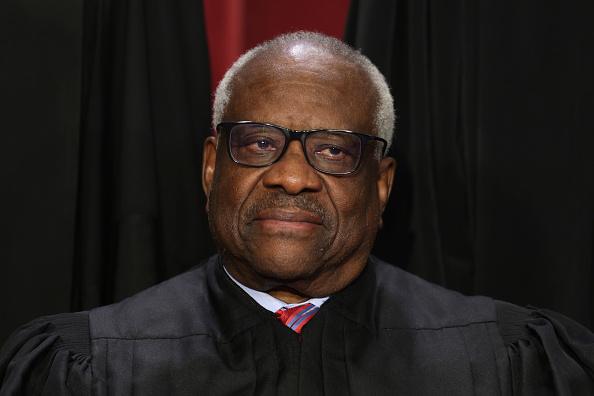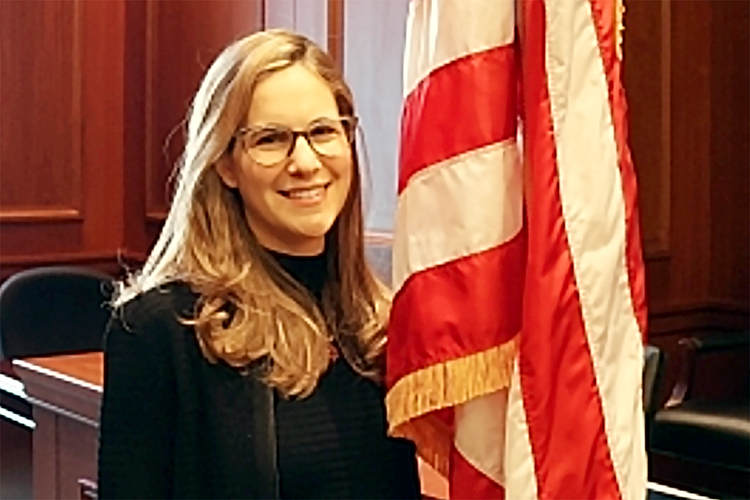Justice Thomas hires clerk accused of sending racist text; was she set up by rogue employee?

U.S. Supreme Court Justice Clarence Thomas poses for an official portrait in the Supreme Court building Oct. 7, 2022, in Washington, D.C. (Photo by Alex Wong/Getty Images)
A graduate of the George Mason University Antonin Scalia Law School will be clerking for U.S. Supreme Court Justice Clarence Thomas, despite a prior allegation that she sent a racist text while working at a conservative group.
Crystal Clanton, class of 2022, will clerk for Thomas for the 2024-2025 term, according to a press release (via How Appealing), the New York Times and an opinion column by the Washington Post.
The New Yorker had reported in 2017 that Clanton allegedly sent the text to a colleague in 2015 while working at the conservative student group Turning Point USA.
“I hate Black people,” the text said. “Like f- - - them all … I hate Blacks. End of story.”
Clanton told the New Yorker that she had no recollection of the messages, and they “do not reflect what I believe or who I am.” The executive director of Turning Point USA, Charlie Kirk, told the New Yorker that “Turning Point assessed the situation and took decisive action within 72 hours of being made aware of the issue.”
Thomas’ wife, Virginia “Ginni” Thomas, was on Turning Point USA’s advisory council. After Clanton left Turning Point USA, she lived with the Thomases for close to a year. Justice Thomas has said he encouraged Clanton to go to law school.
After her graduation, Clanton clerked for U.S. District Judge Corey L. Maze of Alabama and Judge William H. Pryor Jr. of the 11th U.S. Circuit Court of Appeals at Atlanta.
The federal judiciary investigated the situation after Pryor hired Clanton at the request of seven Democratic members of Congress. Pryor told the judiciary in a letter that he learned that the racist email was actually written by a rogue employee fired for creating fake text messages to discredit co-workers. A lawyer for Clanton told Pryor that she did not dispute the allegation because of a nondisclosure agreement.
Thomas recommended Clanton to Pryor, and he thinks that the allegations were false, according to a letter that he submitted for the judiciary investigation.
“I know Crystal Clanton, and I know bigotry,” Thomas wrote. “Bigotry is antithetical to her nature.”
The judiciary investigation ended with a determination that Maze and Pryor knew about the allegations against Clanton but found them to be false.
Write a letter to the editor, share a story tip or update, or report an error.



